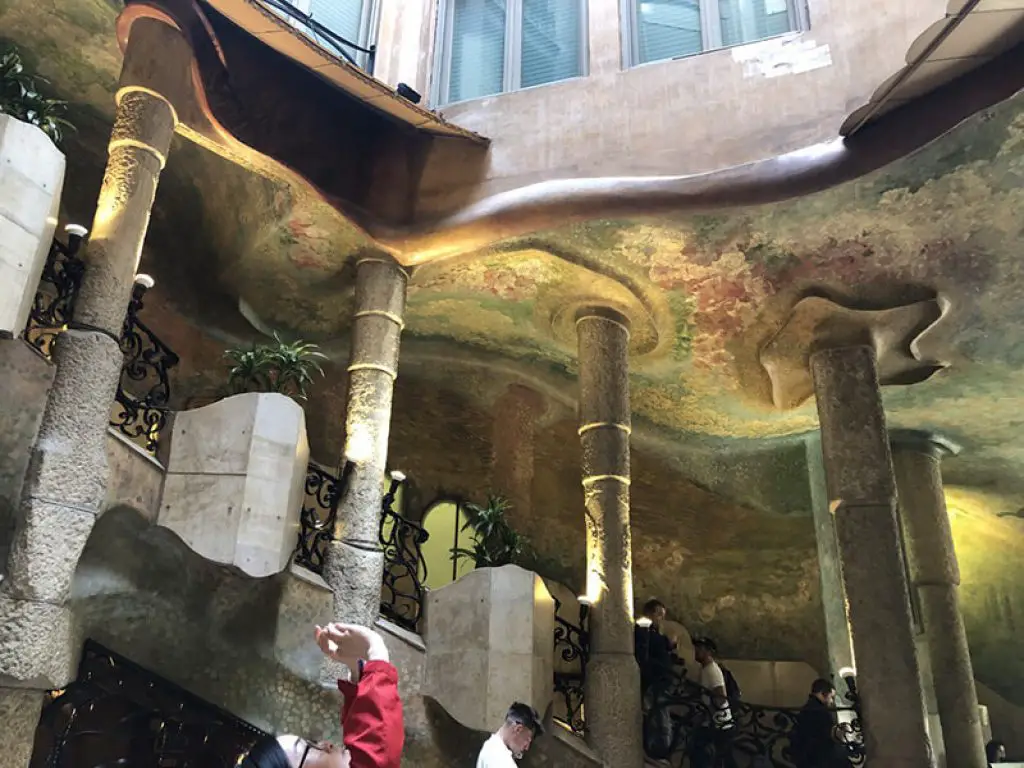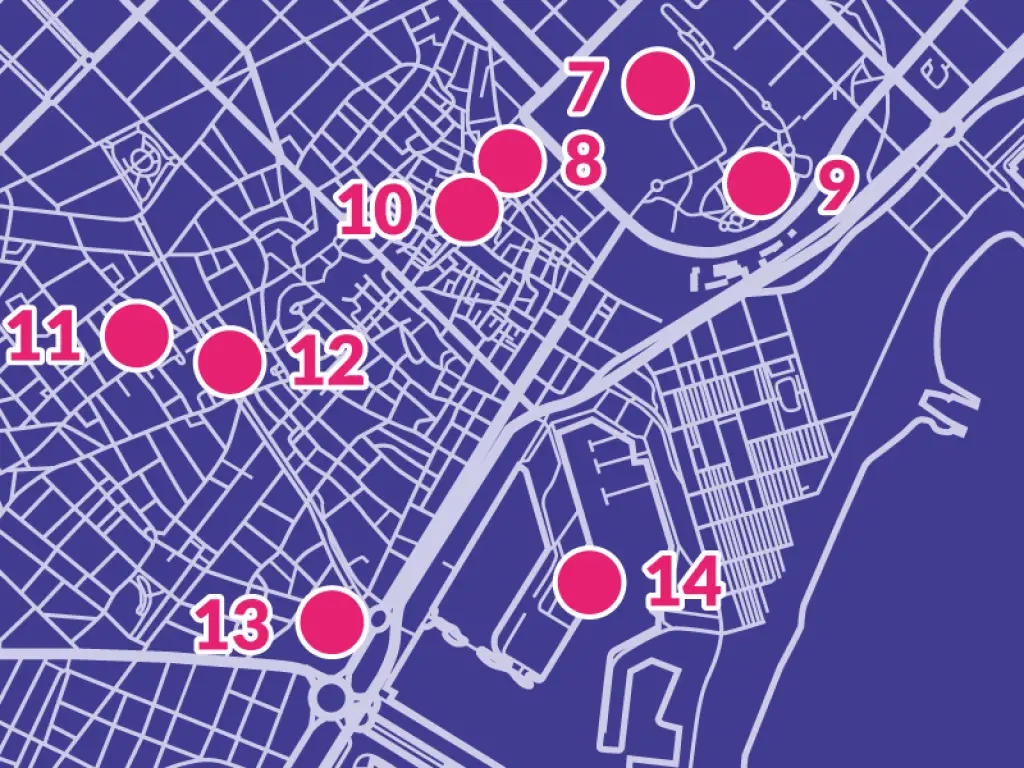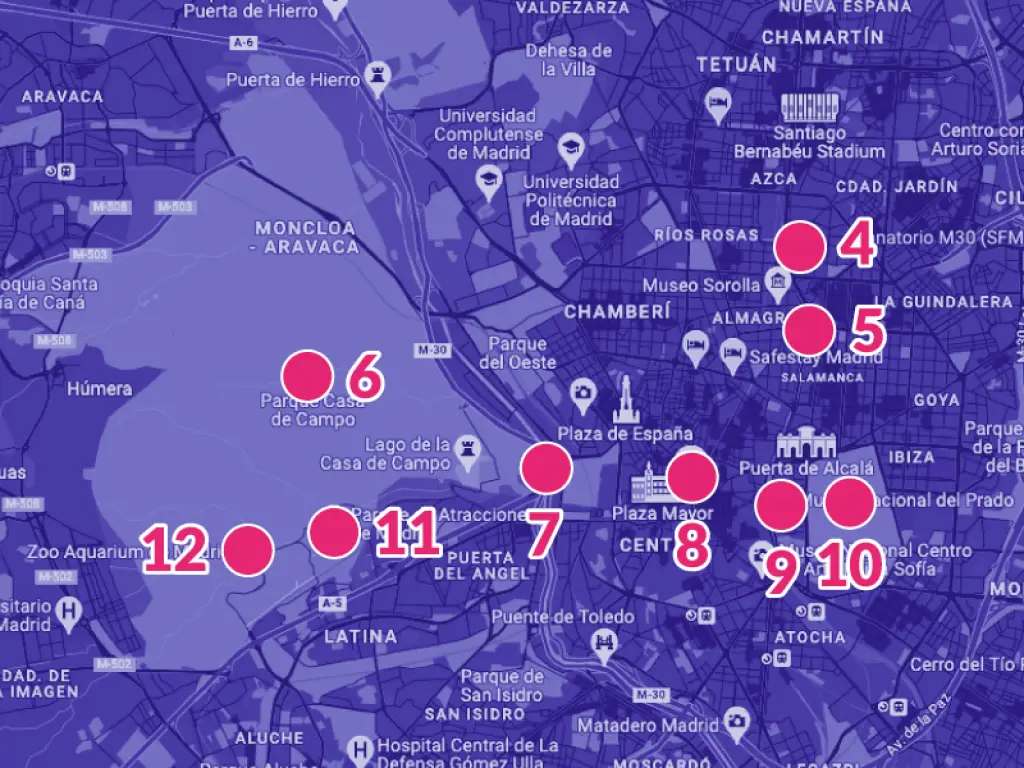Is Valencia Safe? Information for Tourists Going to Valencia
You want to know the standard stuff like history, culture, cuisine and activities before you travel somewhere. However you may want to know if there is anything you need to be aware of. So the question is – is Valencia safe:
Overall Valencia has a higher crime rate than the national average. However it is all relative, because Spain is the 6th safest country in Europe. Having said that, Valencia has a higher incidence of non-violent theft that is above the EU average. So you need to be wary of pickpockets and avoid El Cabanyal, Benicalap, Casitas Roses and the Nazareth areas.
Crime
Forbes ranked the safest countries in Europe in a recent study done in 2022. As a result Forbes ranked Spain as the sixth safest country. You will be happy to know their conclusion is based on many factors which of course includes the crime rate. However it also includes bathing water, healthcare and pollution levels amongst other factors.
In Forbes top list of safest countries, they listed Switzerland as the safest, then Portugal, Slovenia, Austria, Germany, and then Spain.
However particular cities might do better or worse than the national average. Valencia in particular, is safer than Porto in Portugal according to Numbeo. So although Portugal overall is safer, Valencia is a safer city.
Spain had one of the lowest murder rates on the continent in 2020. On the other hand Spain has rates of delinquency that is above the EU average for non-violent theft. This includes crime such as pickpocketing, car theft, robberies in shops and burglaries.
On this page is a chart with different coloured bars with an overview of crime rates in different cities in Spain per 1000 inhabitants as of the third quarter of 2022. As you can see Valencia is in second position with just under 55 crimes per 1000 inhabitants. However everything is relative. The chart does not feature other cities in Spain which have more crime such as Bilbao and Palma de Mallorca.
Hence it is more about what to look out for and which places to avoid. There is inevitably places in every country where you would prefer to not accidentally stray into.
Pickpockets
As mentioned earlier, non-violent theft is more of an issue across Spain. So you have to be aware of pickpockets and the techniques that they use.
Usually pickpockets are coordinated, so thieves work in groups of two or more to steal your possessions. They usually use some sort of distraction technique to get you to focus on something while another group member steals your things.
They are after your money and/or your passport. Hence you should only carry what you need with you and nothing more.
You should make a copy of important documents like passports and leave it in your hotel room just in case you get mugged. At least you will have a back-up to show your identity if needs be. Of course if your items are stolen you should always report it to the police and get in touch with your embassy if your passport is stolen.
Moreover you need to take extra care in crowded areas. This applies during festivals, markets, but also at the airport. At the airport there are some moments when you will be distracted like when checking in or collecting luggage and at desks for services like those for hiring a car. Here it is more likely your belongings will get stolen.
In some resorts or cities, thieves sometimes target tourists by posing as police. They ask tourists to see their wallet for identification. If this happens to you, you should be wary because police in Spain do not ask for wallets. In this case you should ask for the officer’s ID as proof they are genuine.
Moreover if you are going to the beach, do not take anything of value with you. If your mobile device is valuable to you, you can keep it safe while swimming by placing it in an inexpensive waterproof pouch that comes with a lanyard, allowing you to conveniently hang it around your neck.
By doing this you will avoid looking constantly at your items, you will have more peace of mind and able to relax on the beach.
Areas to Avoid in Valencia
There are slum or shady areas that you well want to avoid to stay safe in Valencia. As you can imagine these areas are more prone to poverty and crime and do not have a good reputation. They are all over Spain, in fact there are a few in Valencia, but the worst is El Cabanyal.
El Cabanyal is a dangerous area and is located next to Malvarrosa beach. It is the old fisherman’s quarter and parts of it, including the houses facing the beach are actually quite pretty because of the colonial architecture. Its deceptive, in fact unsuspecting tourists sometime stray into El Cabanyal completely unaware of the problems in the area.
However at some point you will come across dilapidated buildings and perhaps police in the area. A lot of drug deals happen in El Cabanyal and there are a lot of illegal squatters. Apart from El Cabanyal you should also avoid Benicalap, Casitas Roses and the Nazareth areas.
If you want to go to Malvarrosa beach you need to make sure you stay out of El Cabanyal. Alternatively if you do not want to go anywhere near the area, there are other beaches in Valencia you can go to. They are listed on the article: Fun Things to do With Kids in Valencia + Map.
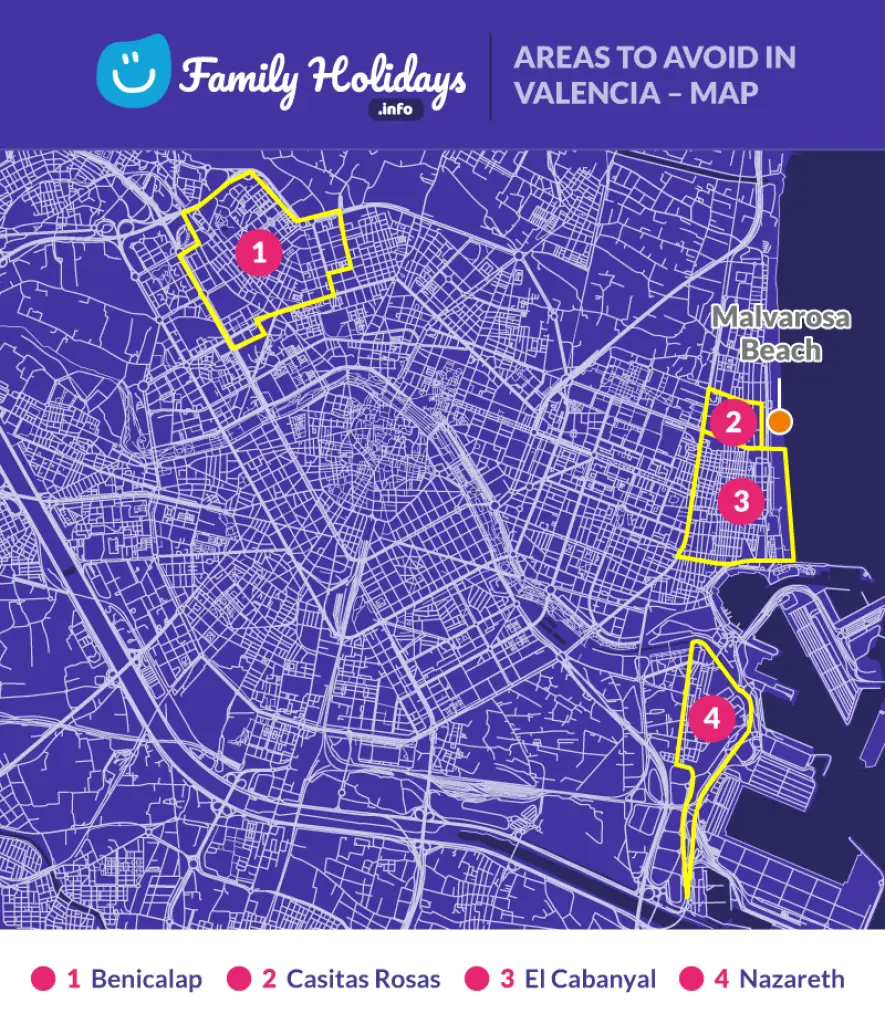
Safe Places to Stay in Valencia
Everywhere else other than the 4 areas you need to avoid are good places to stay. Of course you want to avoid going too close to those areas just in case there is some spill over of shady characters, like what happened to me in Rome.
There are some areas that are really lovely to stay that you may want to consider. Like the central areas of:
- Ciutat Vella here on Booking.com, which has 2000 years of history and beautiful buildings,
- Extramurs here is also good, and
- Ruzafa here which is a trendy area with some nightlife.
For your convenience I highlighted the map on those links, so when you click ‘Show on map’ you can check whether the hotel is in the area suggested.
Ruzafa and Extramurs have all sorts of accommodation bar 5 star hotels. So if you are looking for a luxury stay you will not get one in these areas, but you will in Ciutat Vella. Additionally if you have kids you might want to stay away from Ruzafa to avoid coming across any noisy establishments at night.
Is Velencia Safe at Night?
Most people report that they feel safe in Valencia whether as lone travellers, groups or as families with little kids. As a general rule, people always feel less safe at night almost in most corners of the world, and this is certainly the case with Valencia.
The good thing is that there is not much of a difference with perceived safety. So at night people feel a little less safe, but still fairly safe. The safety index is still quite high which is good to know.
Jellyfish in Valencia
Most of the jellyfish in the Mediterranean that turn up in Valencia, inflict no stings or mild stings. They mostly cause mild irritation and discomfort and are easily treated by:
- Rinsing the affected area with sea water for 5 mintues
- Gently scraping the stingers off by using a credit card or similar item
- Applying vinegar or After Bite
After Bite is brilliant for mild stings because it provides instant relief. It comes in an essence size bottle that you can easily carry around. It’s handy because you can whip it out and use it in those moments when most other remedies are not easily available.
Some people have adverse reactions to even mild stings. In this case it’s best to consult a doctor.
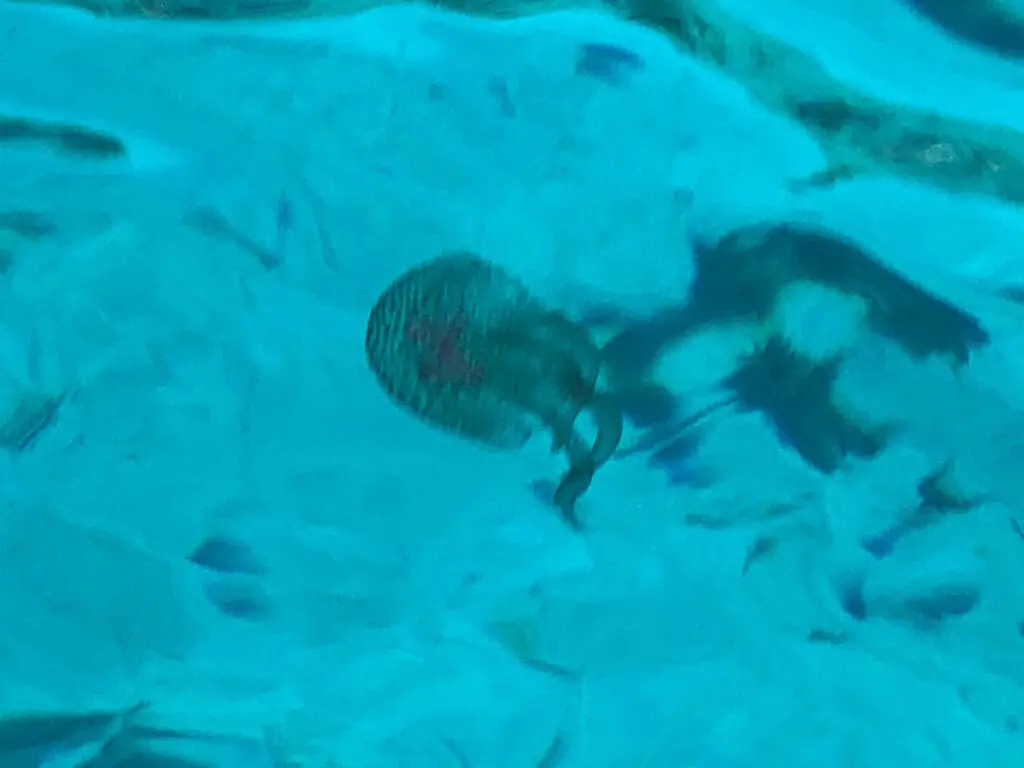
However there are some jellyfish that have more potent stings. One such jellyfish is the Mauve Stinger, that can inflict more pain that could drag out for weeks.
Additionally at times the Portuguese Man o’War appears on the beaches in Valencia. These jellyfish-like creatures are siphonophores that are highly venomous and can be potentially deadly.
Although most people survive the sting, they leave red tentacle marks that look like whip lashes that are excruciatingly painful. However in rare cases, some sadly do not survive their encounter. In fact the Portuguese Man o’War is the only species responsible for the rare jellyfish/siphonophore deaths in the Mediterranean.
Fortunately the Portuguese Man o’War is not a common occurrence in Valencia. However if you do get stung or see one, you should call the emergency line on 112 and notify the lifeguard on duty immediately.
Road Safety
Spaniards have made fantastic progress to improve their roads and made them safer. In fact the number of fatalities over 3 decades decreased by 80%. The improvements they have made, makes Spain one of the best performing countries worldwide when it comes to traffic accidents with fewer than 5 fatalities per 100,000 inhabitants.
However 66% of fatalities happen in more rural areas, 29% in urban areas and 5% on motorways. The worst roads in Spain according to the Today Time Live are the AP8 (Irún-Bilbao), the AP1 (Vitoria-Irún), the A49 (Seville-Portugal), the A7 (Algeciras-Almería), the AP9 (Ferrol-Portugal) and the A52 (Benavente-Vigo). Hence if you intend to rent a car, you should be more vigilante on these roads.
Regardless most fatalities happen because people do not buckle up. So you should wear your seat belt and use booster seats for kids whenever you travel by car.
